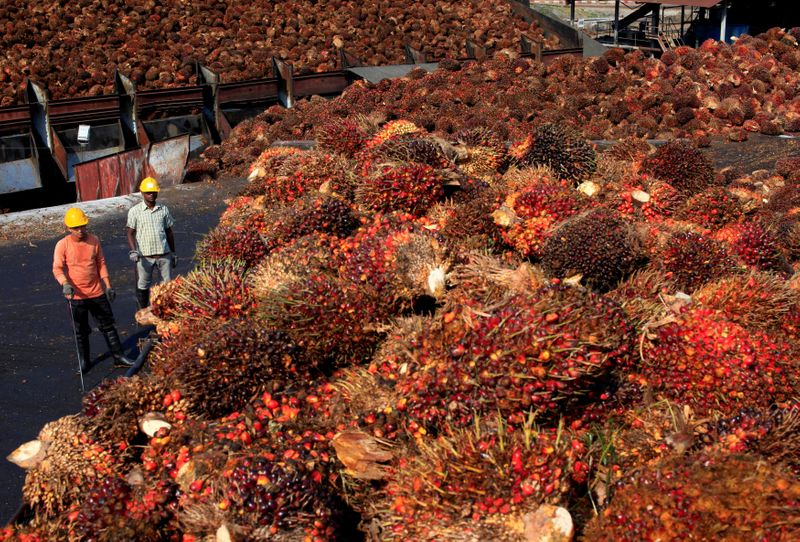KUALA LUMPUR (Reuters) -Workers at Malaysian palm oil company IOI Corp are mistreated by managers, face poor living conditions and pay high recruitment fees, according to a report to be published on Wednesday by human rights group Finnwatch.
IOI said it would comment on the report after its public release and directed Reuters to a “grievance tracker” on its website where it addressed the specific complaints raised by Finnwatch.
IOI faces the accusations days after saying it will assist in any investigation after the U.S. Customs and Border Protection (CBP) said in a letter to an activist that it was investigating the firm over forced labour allegations.
Similar U.S. investigations have in the past led to some Malaysian companies, including two palm oil producers, being banned from selling their products in the United States.
Helsinki-based Finnwatch said it found IOI estate workers from India paid up to 45,000 rupees ($606.31) in recruitment fees, lived in poor housing conditions and were not given copies of their employment contracts. It also criticised its wage policy.
“The case also brought into light serious, persisting gaps in the IOI Group’s wider recruitment and wage policies, and commitment to respect for human rights,” Finnwatch said in the report.
The findings follow an investigation by Finnwatch at an IOI estate in Pahang state on Malaysia’s east coast. It opened an investigation in August 2020 after receiving complaints from a relative of an IOI worker.
Finnwatch shared the report on the investigation with Reuters ahead of its publication on Wednesday. It has also shared the findings and the full report with IOI, and has engaged with IOI since last August.
In the ‘grievance tracker’ on its website, IOI said it had suspended recruitment of workers from recruitment agencies in India after Finnwatch said workers were forced to pay high fees to secure a job. IOI said the fees paid by its workers were illegally collected by unknown actors, cannot be verified and were beyond the firm’s jurisdiction.
U.S. CBP SCRUTINY
Malaysia, the world’s second-largest palm oil producer, relies on migrants to produce the edible oil found in products from food to fuel.
The U.S. CBP has banned three Malaysian companies in the last year, including palm oil producers FGV Holdings and Sime Darby Plantations, for allegedly practicing forced labour including abusive working and living conditions.
Both companies have appointed auditors to evaluate their labour practices and said they would engage with the agency to address the concerns raised.
Following Finnwatch’s investigation, IOI said on its website it had demoted an employee for mistreating a worker, and released guidelines on providing basic amenities and verifying work hours.
IOI told Finnwatch that some workers are paid less as they do not reach the set work targets, according to the company’s response that is also published in the report.
Finnwatch found that IOI had a complex piece-rate wage policy that it said has led to abuse, errors and some being paid below the minimum wage.
In its response to Finnwatch, IOI said workers were given decent housing, but conditions deteriorated “because of a lack of cleanliness by the workers.”
IOI also said it has ordered all estates to give workers a copy of their employment contracts.
($1 = 74.2200 Indian rupees)
(Reporting by Mei Mei Chu, Editing by Timothy Heritage)























